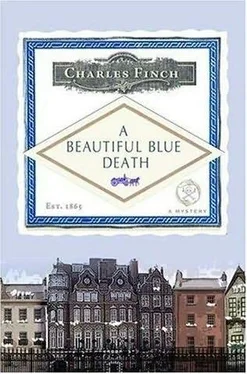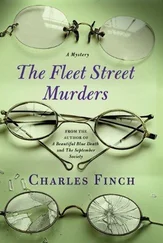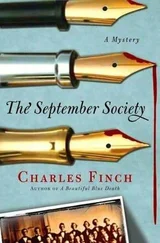Charles Finch - Beautiful blue death
Здесь есть возможность читать онлайн «Charles Finch - Beautiful blue death» весь текст электронной книги совершенно бесплатно (целиком полную версию без сокращений). В некоторых случаях можно слушать аудио, скачать через торрент в формате fb2 и присутствует краткое содержание. Жанр: Исторический детектив, на английском языке. Описание произведения, (предисловие) а так же отзывы посетителей доступны на портале библиотеки ЛибКат.
- Название:Beautiful blue death
- Автор:
- Жанр:
- Год:неизвестен
- ISBN:нет данных
- Рейтинг книги:5 / 5. Голосов: 1
-
Избранное:Добавить в избранное
- Отзывы:
-
Ваша оценка:
- 100
- 1
- 2
- 3
- 4
- 5
Beautiful blue death: краткое содержание, описание и аннотация
Предлагаем к чтению аннотацию, описание, краткое содержание или предисловие (зависит от того, что написал сам автор книги «Beautiful blue death»). Если вы не нашли необходимую информацию о книге — напишите в комментариях, мы постараемся отыскать её.
Beautiful blue death — читать онлайн бесплатно полную книгу (весь текст) целиком
Ниже представлен текст книги, разбитый по страницам. Система сохранения места последней прочитанной страницы, позволяет с удобством читать онлайн бесплатно книгу «Beautiful blue death», без необходимости каждый раз заново искать на чём Вы остановились. Поставьте закладку, и сможете в любой момент перейти на страницу, на которой закончили чтение.
Интервал:
Закладка:
“Will that be all right, then?” Lenox asked.
“Yes, sir. If I may suggest something else, sir?”
“Go on.”
“I think I might also have an easier time than you in finding out more about Miss Smith, sir.”
“The same sort of task, only here on Hampden Lane?”
“Exactly, sir.”
“Dashed good idea, that. Wish I’d thought of it. Jane says she was provocative, and you say she was exotic. What does that mean?”
“I shall try to find out, sir.”
“Ask the girls in both houses-at any rate, it was your idea and you’ll know how to handle it.”
“Hopefully, sir.”
“Good work. All right then, take the day off tomorrow to do those things. Oh,” he said. “Here are a few pounds to do them with.”
“Thank you, sir.”
“Good night, Graham.”
“Good night, sir.”
He sighed. “Villefranche, Graham.”
“Yes, sir,” he said.
The butler walked out of the room, though Lenox knew that he would sit in the hallway until Lenox himself had gone to bed. Which would be wonderfully soon, he thought.
The fire was dying but warm, and once again he took off his boots and his socks and warmed his feet, which were again wet and cold, by the embers. He picked up The Small House at Alling-ton and read a chapter, sipping the last of his warm wine while he did. What a long day it had been!
And oh, how he had been looking forward to the seaside! Well, well, he thought. It will all turn out right. He dropped the book to his side, placed his hands on the top of his stomach, and stared, for a few moments, into the fire. Poor Jane, he thought. Bella indigo, whatever that was. He would have to visit a chemist on his own…
His eyes began to close, and he knew it was time to wander up to his bedroom and put on his nightcap. He heaved his body from the chair and said, as he walked into the hallway, “Oh, and Graham? You had better cancel the trip with Mr. Kerr in the morning.”
Graham was, of course, seated in the hall, reading his newspaper and eating an oat cake. “Yes, sir,” he said.
“And you’d better give him fifty pounds as good-faith money for the next trip.” Lenox yawned. “He’ll be terribly cross, you know. I keep canceling.”
“Yes, sir.”
“Now really, Graham, go to bed. I’m only going to have a bath and fall asleep.”
The butler stood up, and Lenox smiled at him.
“Good night,” he said. “And good luck tomorrow.”
Graham nodded. “Good night, sir,” he said, and sat down again in his chair, pulling the newspaper from his pocket.
Chapter 8
L enox’s stationery was plain white, with his address printed at the top in dark blue. When he woke up the next morning, he took a piece of it from his bedside table, wrote in a quick hand, Prudence Smith could neither read nor write, and put it in an envelope without signing it. On the envelope he printed the name MCCONNELL and then rang a bell to fetch a servant, whom he asked to take the letter to his friend’s house on Bond Street.
That done, he lay back in bed, rubbed his eyes, and looked at the time: seven-thirty He would have to hurry to make breakfast with Barnard.
He thought as he dressed about the shocking moment when Jane’s maid had discredited the suicide note entirely. The idea of murder had clicked from probability to truth. At the same time, he thought, there was a closed household to deal with. Five guests; even more servants. Although there was the open window. And the unused candle, which troubled him. How often were candles changed? He should ask Graham. Or better yet, ask Graham to find out from one of the servants at Barnard’s house.
It was funny, he thought; his first case had revolved around a candle, too. He had been only twenty-two and had gone to visit a family friend, Lady Deborah Marbury, to pay his respects after her son’s violent murder. John Marbury had been discovered shot, slumped over the table at his club, and Deborah had been sure it was his friend Hawkins, whom she thought rather a bad influence.
The details from the paper, mixed with the sorrow of his father’s friend, had rankled Lenox. Slowly he had begun to nibble around the edges of the case, going to the club where it had happened (and where he was a member), asking around a bit about Hawkins. The deeper he went the more perplexing it got. Hawkins appeared to be innocent. For one thing, Hawkins had been facing young John Marbury across the card table, but the wound indicated that the bullet had come from the roof across the street.
He solved the case by looking through the card room at the club, where he found, tucked beneath a curtain, three half-used candles and an only slightly used fourth one. One detail that policemen had found puzzling was that Hawkins had had three candles. He had explained he needed them to read his cards by, but it was a well-lighted room. Then he had added a fourth candle, and almost immediately Marbury had been shot. The fourth candle was the signal. A single candle wouldn’t have done, because the brightness wouldn’t have shown across the street. There had turned out to be gambling debts. If the game had gone the right way, the fourth candle would have stayed underneath the table.
Lenox had anonymously given his findings in a sheath of papers to the police at Scotland Yard. The case had been instantly settled, and since then Lenox had been fascinated by detective work. People reached him only by word of mouth. He was an amateur-and because he worked for free, not needing to do otherwise, he attracted many poor clients. On the other hand, because he was from one of the oldest and most respected families in England, he also attracted the rich and the noble, who expected him to have the discretion of a friend.
What had made him think of all this? The candle…
At ten minutes before eight, he stepped into his carriage. Graham ran out to catch him and handed him a note that had just arrived. It was from McConnell: Only one apothecary in London sells bella indigo. Nos. 4 and 9. Penny Farthing Place. Fellow named Jeremiah Jones.
Lenox thought this over and put the note in his pocket, then asked the driver to go.
It was a bright sunny morning, but cold, and the snow still crunched underfoot. He arrived at Barnard’s house a few minutes after the hour and greeted the housekeeper amiably, though he received little reward for it.
In the hallway was a young man, perhaps recently down from university or still there. He had on glasses and wore his hair slightly longer than most men of his age. But he was dressed well, in a blue morning suit with a carnation in the buttonhole, and clearly felt at home in the house.
“How do you do?” said the young man.
“Very well, thank you.”
“I’m Claude. I’m staying here with my uncle, you know.”
“It’s a pleasure to meet you, Claude. I’m Charles Lenox.”
They shook hands.
“It seems impossibly early to me,” said Claude.
“It’s already past eight,” said Lenox.
“I like how you say already, as if eight were a particularly late hour.”
“It’s not early for me, I must say.”
“It damn well is for me.”
“You’re younger.”
“And may it stay forever so. Still, I must see a man about a thing. Good to have met you,” he said, and bounded down the steps to the street.
“You too,” said Lenox, and followed the impatient housekeeper into the breakfast room, adjacent to the formal dining salon. It was a small octagonal room looking out over the back garden, with a circular table at its center, where George Barnard sat with a nearly empty cup of tea at his elbow, studying a pale blue orchid.
“Charles, sit down,” he said, without looking up.
“Thank you,” said Lenox.
Читать дальшеИнтервал:
Закладка:
Похожие книги на «Beautiful blue death»
Представляем Вашему вниманию похожие книги на «Beautiful blue death» списком для выбора. Мы отобрали схожую по названию и смыслу литературу в надежде предоставить читателям больше вариантов отыскать новые, интересные, ещё непрочитанные произведения.
Обсуждение, отзывы о книге «Beautiful blue death» и просто собственные мнения читателей. Оставьте ваши комментарии, напишите, что Вы думаете о произведении, его смысле или главных героях. Укажите что конкретно понравилось, а что нет, и почему Вы так считаете.












